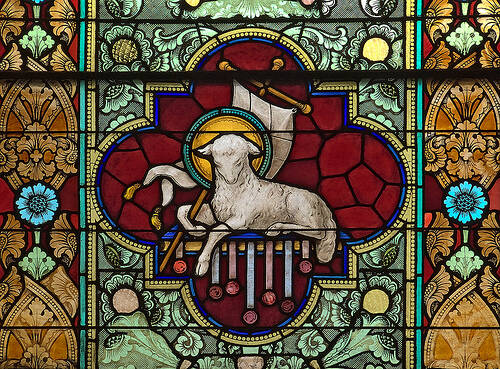Religion has a way of ruining most everything, especially the sacred. You can already see the problem in the two Latin words. Religare means “to bind up” or “to fasten down.” Sacrare means “to cut off.” So, by its nature, religion seeks to make routine that which, by its nature, cannot be captured, namely, the sacred.
Take, for example, the Passover. What happened that night, when the first-born of Egypt were slain and lambs’ blood marked the lintels of the Israelites, was terrifying, awe-inspiring. The Exodus was more than the Chosen People could comprehend, much less control. That’s the scent of the sacred: it so exceeds us, goes so far beyond us, that we rightly fear it.
But religion has a way of ruining most everything, especially the sacred. Moses commanded, “This day shall be a memorial feast for you, which all your generations shall celebrate with pilgrimage to the Lord, as a perpetual institution” (Ex 12: 14). You can hear him, trying to forestall the inevitable routine of religion. “This is how you are to eat it: with your loins girt, sandals on your feet and your staff in hand, you shall eat like those who are in flight” (Ex 12:11). One can’t fault the Hebrews for the paradox that separates humanity from God. We live by routines, in the regular, through the repeatable. But God is singular, strange, sacred.
It took Christians even less time to reduce the sacred to the religious. Consider Saint Paul, who gives us our first written witness to the Eucharist. Why did he write? Because he had to chide his community in Corinth for turning Christ’s sacred meal into a religious observance, one that ignored the poor.
Saint John’s account of the Last Supper makes no mention of bread and wine, though the Fourth Gospel teaches extensively of Jesus as the Bread of Life. Did the Beloved Disciple retrieve from memory the washing of the feet and slip it into his story as a way of saving the sacred from the religious? Were Christians at the turn of first century already finding ways to domesticate the awful grace, the awe-filled grace, of that first Eucharist? Religion has a way of ruining most everything, especially the sacred. Christ bespoke his body and his blood. The night before he died he gave them to us in ritual; the next day he offered them on the cross. Only half a century later, the fourth evangelist must recapture from religious ritual the intimacy and the humility of that first, sacred night.
In her Prayer Journal a young Flannery O’Connor wrote that “we are dependent on God for our adoration of Him, adoration, that is, in the fullest sense of the term.” She prayed, “Give me the grace, dear God, to adore You for even this I cannot do for myself.” And then this laywoman wrote what shames this priest, not realizing that priests are always tempted to let the sacred simper into the merely religious:
Give me the grace to adore You with the excitement of the old priests when they sacrificed a lamb to You. Give me the grace to adore you with that awe that fills your priests when the sacrifice the Lamb on our altars. Give me the grace to be impatient for the time when I shall see You face to face and need no stimulus than that to adore You. Give me the grace, dear God, to see the bareness and the misery of the places where You are not adored but desecrated (8-9).
Religion has a way of ruining most everything, especially the sacred. Always has and always will, because religion is a human invention, as old as our own humanity, while the Sacred stands forever far above it, young and ageless. Yet one spring night, one sacred night, in Jerusalem, at the time of the Passover,
the Lord Jesus, on the night he was handed over,
took bread, and, after he had given thanks,
broke it and said, “This is my body that is for you.
Do this in remembrance of me.”
In the same way also the cup, after supper, saying,
“This cup is the new covenant in my blood.” (1 Cor 11: 23-25)
Exodus 12: 1-8, 11-14 1 Corinthians 11: 23-36 John 13: 1-15








